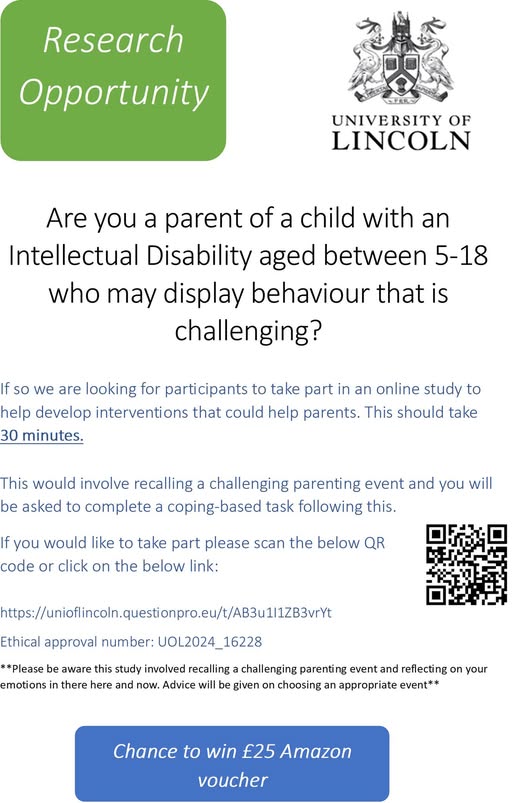Shape Research, Change Lives: your voice matters!
A research team led by leading scholars including Professors Emily Farran, Gaia Scerif and more are inviting people living with Fragile X Syndrome aged 10 and over and their parents and/or carers to take part in a survey (also available in German, Spanish, Italian,
Dutch, Polish, Portuguese and Hindi).
Results obtained from this survey will be analysed by the team to understand how the FXS community wishes to be supported through future research and policymaking. This is a huge step forward in ensuring that researching FXS and other rare conditions is inclusive, holistic and meaningful to the community itself. FraXI strongly encourages all our members to share their valuable input. Together, we can change the way the world of research approaches topics which are important to all of us who live with FXS.
Click here to access the survey.
A FraXI approved Study
Please see below information from Adam Whalley, a student doing a Doctorate in Clinical Psychology at the University of Lincoln, UK. He has asked FraXI to advertise his research and invite people to complete his questionnaire. He has completed our FraXI research Protocol and his proposal has been approved by our Research Committee.
A Thesis on Parental Coping – An online Questionnaire
My name is Adam Whalley, I am recruiting participants for my Doctorate thesis project on Parental coping in parents with a child with an Intellectual disability. This is for my Doctorate in Clinical Psychology (DclinPsy). Your participation should take around 30 min and is completely voluntary. You will be entered into a draw to win one of four £25 Amazon vouchers.
Inclusion criteria;
(1) You have a child aged 5-18 who has an Intellectual disability and displays behaviors that you perceive as challenging. (2) Due to these above factors there is an impact on your psychological wellbeing (i.e., stress)
Unfortunately you would not be eligible if;
(1) You are in receipt of a current psychological intervention, (2) you are unable to access the study online, (3) you are unable to read or write in English, (4) your child has a learning “difference” such as dyslexia or dyspraxia without an ID diagnosis.
Full definitions of challenging behaviour and further details on the inclusion/exclusion criteria will be detailed in the study information sheet, which will be provided should you take part in this study.
If you would like to take part, please click on the link below. Thank you!
https://unioflincoln.questionpro.eu/t/AB3u1I1ZB3vrYt
Ethics reference UoL2024_16228.
Topics of potentially sensitive nature: The study involved recalling a challenging event as a parent and to reflect on your emotions as a result of this event. Therefore, if such topics are likely to cause you distress, it is advised that you do not participate.



